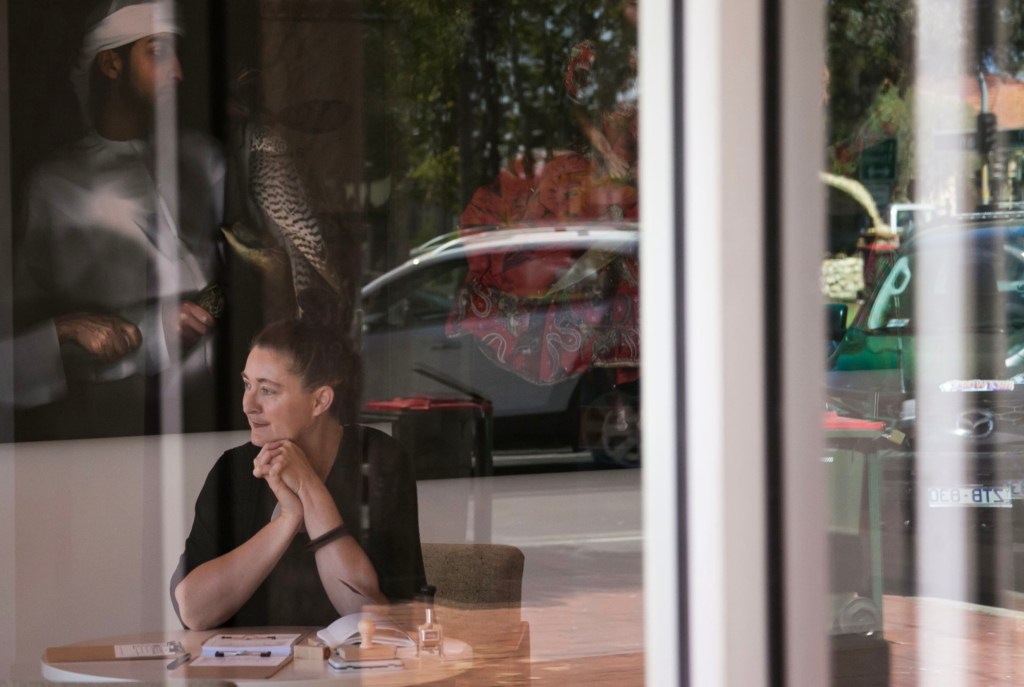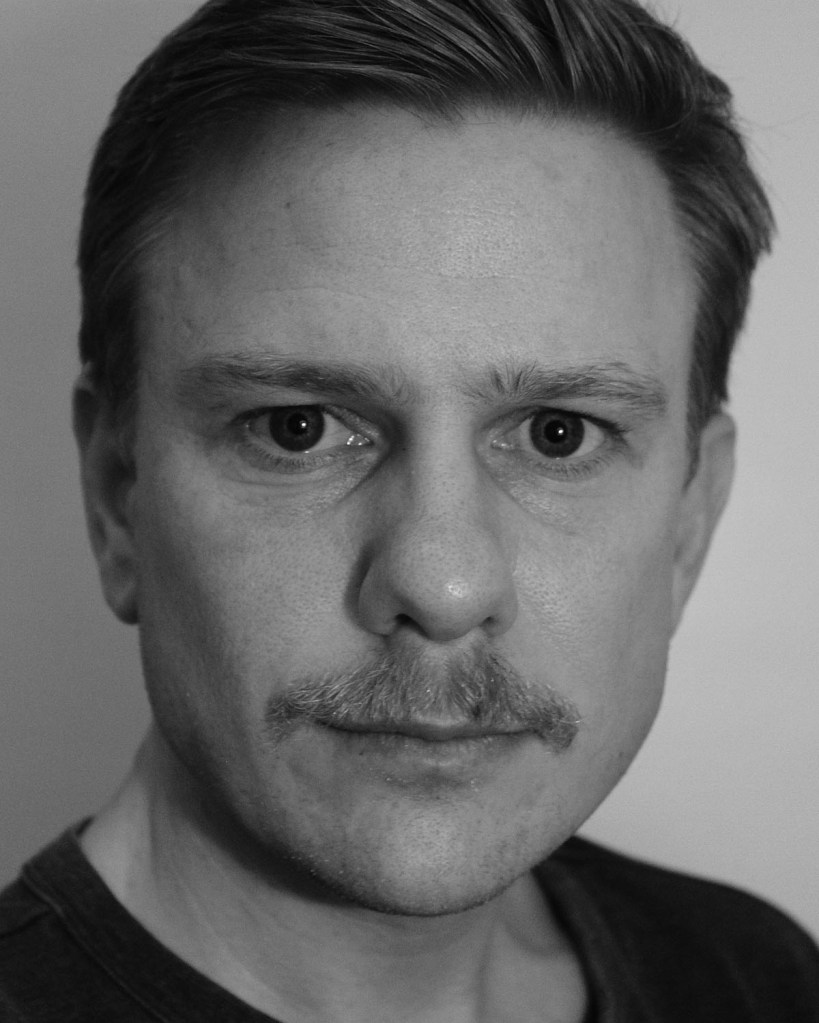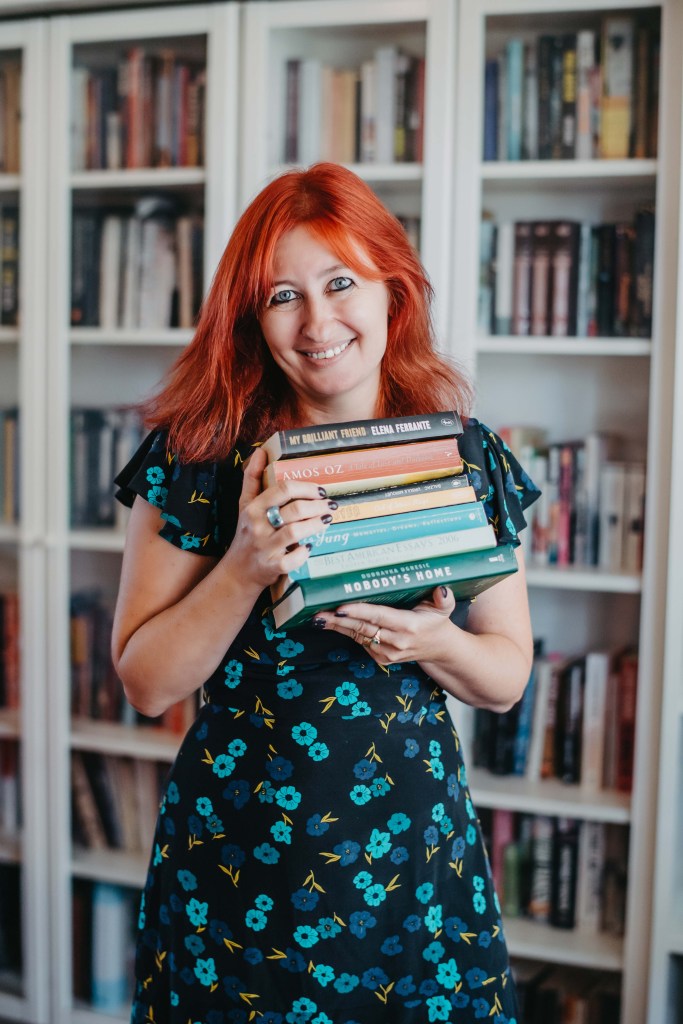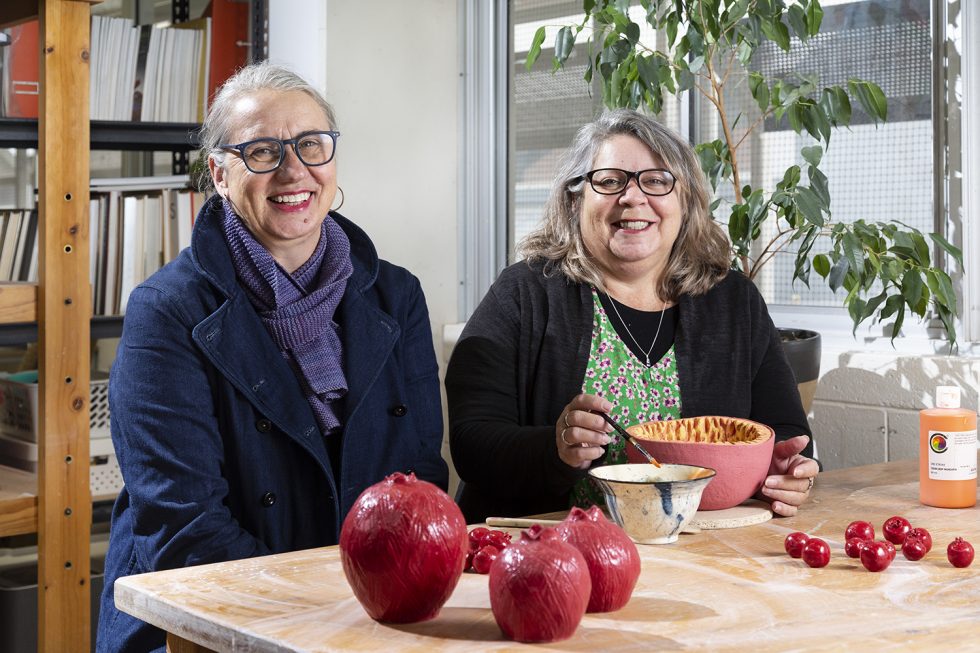My fantasy of being mentored looks something like this: I meet regularly with an older, wiser person at the peak of her powers. Maybe we meet for coffee or, even better, wine and dinner. She sees my potential and offers encouragement, along with some gentle but perfectly targeted constructive criticism. She says that I inspire her too! (There’s a lot of ego in mentoring fantasies – more on that later – and not a lot of actual hard work.) She shares her networks with me and, as the years pass, the two of us become more like colleagues and friends than mentor and mentee. Rosy glow all round. Closing credits.
Occasionally it actually works out like this. If you’re lucky, you’ve had lots of positive experiences of unofficial mentoring, from that high school teacher who noticed your talents, to the PhD supervisor or senior artist who put you forward for career-making work.
But finding a mentor outside of school or university can be hard, especially in the arts where careers are fragmented and less structured, and everyone is stretched for time and money. Official mentorship programs can be a great option, but they’re not for everyone. More personal and informal relationships are essential too.
We asked a sample of people from across the arts to share their ideas on finding a good mentor and making the relationship work in a productive, healthy way. Many of the respondents reiterated that ‘mentoring’ is modern terminology for an ancient human way of learning, passing on wisdom, building community and making art.
Of course there are common sense principles and practices that help to structure good mentor relationships, but there’s also some magic involved.
Quick takeaways
- Be open to mentoring from a variety of different people and programs – not just the big-name experts in your field.
- If you want a mentor, be brave and ask. Respect time boundaries and gracefully accept a “no” or a “not now”.
- Do your research and know what gaps and absences you may be trying to address.
- Listen, both as a mentor and mentee. Talking too much is a common problem. (There’s that ego again. Check it!)
- Be prepared to work hard. A mentor isn’t going to do the work for you and a mentoring program will probably require you to do extra work.
- Build a ‘brains trust’ of experts and colleagues who are not officially mentors, but people you can reach out to for specific reasons.
- Pay it forward. Be prepared to mentor and champion others when you’ve been the recipient of professional development.
- Remember that mentoring is not going to fix structural inequalities in the workforce.
- If a relationship isn’t working, get out. You need to have good chemistry, clear communication and shared vision.
What is a mentor?
Performance artist, maker and curator Leisa Shelton has been involved as a mentor in many initiatives. She has a deep philosophy on mentoring and says: ‘The term mentor came from the name of the character that acted as guardian, adviser, teacher and friend to Odysseus‘ son during his absence. There are many meanings for this role – but this one has always interested me as it focuses on the need for this role due to an absence, a space that needs filling and to be held. I think this has always been the experience for me – an enabling, a listening, a holding in place.
‘As someone who recognised the “absence” in my own development as an artist, it is a space I actively sought to fill and continue to see as a vital part of my practice. In many ways, most of my teaching roles have had mentoring at the heart of the role. My interest in teaching is to see the potential of each individual and to enable that to come forward.’

Shelton says that a successful mentor-mentee relationship happens when there is a “meeting” and there is “reciprocity”.
‘I am challenged, extended and required to respond to where the individual’s work/questions/research/ project is. It is not my work – it is theirs, and so I am required to work in new ways with each encounter. I love that.’
Structured mentoring programs

Dr Kim Goodwin, Lecturer in Arts and Cultural Management at the University of Melbourne, has a special interest in mentorship in its many complex forms. One of her projects has been the establishment of the innovative Creative Community Connections program at the university, a form of unofficial mentorship for students, alumni and industry professionals working in the arts and cultural sector.
‘Mentoring can be a great, cost-effective, flexible way to receive practical professional development,’ says Goodwin. ‘Given all the benefits, it isn’t hard to see why mentoring programs are often created by peak associations and funding bodies.
‘The challenge with structured mentoring programs – those where mentors and mentees are “matched” together and have a plan of meetings or topics – can be that they rely on those involved working well together and being able to fit into a defined schedule or plan. It can work, but there is a bit of luck involved, as there’s a chemistry with finding the right person to work with. I have been meeting semi-regularly with an arts manager I was “matched” with in 2019. The program itself is long gone, but we connected and have maintained our professional relationship, meeting in person for the first time at a festival in March. Many programs do not have such longevity.’
Shelton agrees that structured mentoring programs can lack flexibility and diversity, saying, ‘In some of the early Australia Council initiatives, and often within university contexts, “guidelines” outlining “required outcomes” became more and more present [and imposing].
‘I don’t feel a generic way is useful. Diversity is far more interesting and the more open each mentor and each mentoring opportunity is, the more successful it will be for the mentee.’
Finding a program that fits
Mentorship programs in the arts are so plentiful that the peak organisation, the Australia Council for the Arts, that it has created a Guide to Mentoring available as a free PDF with handy checklists (see the end of this article).
“Mentoring” these days often comes with different language. Leadership programs, accelerator programs, scholarships and digital development initiatives all usually involve some kind of one-on-one meeting with a senior person who shares their wisdom, encouragement and feedback.
Finding a program that fits your purpose requires some digging inside your sector and many are state-based. Notable mentoring programs in Australia that prove a good model, include the groundbreaking Guildhouse Catapult mentoring program for South Australian visual artists (itself the subject of significant research [PDF] into structured mentoring for artists) and the long-standing Helpmann Academy Mentorships for emerging SA visual and performing artists.
Other programs that come to mind include the Wheeler Centre’s Next Chapter mentor scheme for writers, the NSW Accessible Arts Next Level creative mentorships and Screen Australia’s Enterprise People funding, which matches recipients with both a creative mentor and career consultant. You can also keep an eye on ArtsHub’s Mentorships Arts Opportunities page.
Being chosen builds confidence
The very fact of being chosen to participate in a prestigious mentoring program is bound to be a confidence boost and validation of one’s creative identity. Even the process of applying and being rejected can help you clarify your goals and where you need help.

Visual artist Georgia Spain, winner of the 2021 Sir John Sulman Prize, says that being awarded a Brett Whiteley Travelling Art Scholarship in 2020 was a key moment in building her sense of herself as a professional artist.
The two-week residency at the Shark Island Institute in Kangaroo Valley, with four other artists, involved being mentored by Archibald Prize-winning artist, Ben Quilty.
‘It was nerve-wracking at first to be evaluated and given feedback by someone so much more experienced,’ Spain tells ArtsHub, ‘but there was also this feeling of all of us just being artists together. Even when there was criticism it was done with a sense of supportiveness and respect.
‘Ben was so helpful and generous, and now he is someone I can pick up the phone and call if I have a question, and I visited him recently when I was in NSW for an exhibition.’
Spain says she had never been officially mentored before, though more senior artists like Richard Lewer have been generous with sharing their knowledge and experience, especially around practical matters. ‘Like, how do I negotiate with a gallery? Or which shipping company do you use to send work overseas, and how do you pack things? All those things around the business of being an artist.’
When asked about her ideal mentor, Spain has her own fantasy. ‘I’d love to have a mentor who’s this older woman who’s an artist and a lot further on in her career,’ she says. ‘Someone I could aspire to be in 50 years’ time. Of course I’d have no idea how to approach such a person.’
The advice from all the mentors we spoke to for this story is to just ask. Many people say they love to be approached and want to share what they’ve learned, especially if you’re respectful of their time. (Do beware of the egomaniacs, of course – the ones who just want adoring acolytes.)
The permission to take yourself seriously
Award-winning Australian playwright Tom Holloway says the early encouragement of his mentors was essential, especially growing up in Hobart where there was no professional theatre company and finding opportunities was tough.

‘Very luckily for me a few locals took me under their wing – Iain Lang, Robert Jarman and others. They helped me take a life in theatre seriously, offered their time and genius to the works I was developing, and urged me to continue to pursue my craft. My relationship with Robert led to an incredibly positive, collaborative working relationship where we’ve now worked many times together as peers. I absolutely love it,’ says Holloway.
‘I had official mentors as well. Both Timothy Daly and Julian Meyrick worked with me when I was emerging and had just left Tasmania. Much like with Iain and Robert in Tasmania, they gave me so much of their time and helped inspire me to take my writing seriously and push myself. Just like with Robert, I was lucky to go on with Julian as a peer. In fact the three of us even worked together on a project, which was a particularly special experience for me.
‘Choosing to become a playwright is hard. The work is hard. The opportunities are few. I have absolutely no doubt I would have given up very early on if it wasn’t for the support of these mentors. That is the thing I’ve cherished the most. It’s also why I try to make myself available as a mentor now too.’
Situational mentorships – just ask!
Kim Goodwin says that “situational mentorships” often don’t have labels and aren’t defined, but happen when you reach out to someone who can help you develop in a specific way or for a specific need.
‘It may not be a long, ongoing relationship and you may not meet regularly, but situational mentors are the people who you can call out of the blue to ask for some specific advice. I recommend to my students they consciously cultivate people like this, call it their “brains trust” or their community. It is not mentoring by definition, but it fulfils the same need and does not put pressure on either party to adhere to a plan or schedule.
‘The question is always “but how do I do find situational mentors?” And the simple answer is to just ask.
‘People love to be recognised and valued; it is rare that arts community members will say “no” when they are asked out for a coffee to discuss their professional expertise. Contacting someone to say, for example, “I am an early career arts manager looking to build my career in performing arts marketing, I’d love to ask your opinions on the skills you need to succeed,” demonstrates specificity and recognises that they have valuable advice to give. The worst that can happen is they say “no”, and we are pretty good at handling rejection in the arts.’
When mentoring goes wrong – and right
Writer, poet and musician Amanda E Collins wrote the book Not Dead Yet – a practical guide for the dying and those who are supporting them. She jokes that she’s a failed mentee.
‘I live in Central Victoria. A local large town offered mentorships during 2021. I read about it and thought “I want a mentor!” So I applied, and was matched with a lovely, very busy creative director. We had a couple of coffee dates and he gently suggested that I pick a project and a date and he would be able to help me work towards it … but I was a bit wishy washy.
‘As it happened, I had launched my book in March 2020 (I know, right?) and had been absolutely flattened by subsequent events. While I quite wanted to do promotion for it in 2021, the gas had gone out of the balloon on it. Anything new I could think of had less lustre.
‘So, while we had some nice conversations, no new work eventuated. My lovely (busy) mentor got sick, then got busy running events, and so we never met again. For months I felt terribly guilty that I had wasted his time because I didn’t make any work out of the mentorship.’
Collins says she wishes she’d been clearer in her own mind about why she actually needed a mentor before applying. ‘I also think I needed to be more clear in my own mind about how he could help, and have a feasible project in mind before our first meeting.’
Bad advice from a famous writer
Lee Kofman, writer of memoirs including The Dangerous Bride, Imperfect and The Writer Laid Bare, remembers her own worst experience of being mentored.
‘It was during my early years in Australia, when I was trying to become a “writer-in-English” (my first three books were published in Israel, in Hebrew) and write a memoir. I was awarded mentoring with a highly respected novelist. “Never write from a man’s perspective,” he told me during our first session. I hadn’t shown him anything written from a male perspective, but I was so intimidated I didn’t dare to ask why he imparted this particular advice. (If my mentor had taken some interest in me, he’d have known I’d already published three books featuring narrators of both genders.)
‘At our second meeting he offered more advice: “I like what you sent me, but… You’re too young to be writing a memoir.” I considered enquiring what the eligible age for memoirists was and whether he even knew my age, but instead I dropped out from that mentorship altogether.
‘Some years later, when I was already two-thirds through the draft of that memoir, I was lucky to be mentored by the renowned editor Judith Lukin-Amundsen and that was my best mentoring experience. Judith, unlike my previous mentor, actually took her time to understand who I was and what I was trying to write. She read what I had and said she believed in my voice and what I was trying to achieve, but also identified two major flaws: my narrator-self sometimes sounded preachy and the research overtook the narrative. Judith’s honest assessment resonated deeply and her confidence in my work was encouraging enough for me to believe I could fix those problems. Under her guidance, I finished the draft I was working on for years in just a few months.’

Now a highly sought after writing teacher and mentor herself, Kofman says there are early indicators that help her determine whether to take on a mentee.
‘The most glaring warning sign is when someone approaches me for the first time, usually by email, telling me many personal things about themselves and a little bit about their work (mostly in generic, fuzzy sentences, such as, “It is a memoir about trauma and resilience…” or “I’m writing a philosophical novel to educate people how to…”) before they even know if I am available/willing to take them on.
‘A green light is the opposite – when someone approaches me concisely, sticking to the (writing) point, telling me what they’re working on, what stage of writing they are at and why they need a mentor. The latter approach tells me here is someone who knows what they need and is ready for a mentoring relationship with clear boundaries. And without boundaries, I don’t believe I can be much use to a writer.’
Is it the right time to seek a mentor?
George Dunford, a mentor with ACMI’s CEO Digital Mentoring Program in 2021, says that one of the pitfalls for both mentors and mentees is that you can underestimate the time commitment involved.
‘It can take a chunk of time [and] I think mentees need to think about if it is the right time to do a mentorship, because it often means doing work outside of mentoring sessions to learn more.
‘You feel hugely honoured to be asked to be a mentor, but the reality is that there is a slog to it as well. Unlike teaching, you’re prepping sessions that are bespoke to your mentee, working out what would work for them.’
Dunford also cautions against the misconception ‘that a mentor is a consultant who will deliver something for an organisation’.
‘I was working in digital strategy for the Australia Council program, so mentees had the idea I’d create their organisation’s strategy. But really you’re about supporting and empowering your mentee to create strategy. You can provoke, challenge, critique and sometimes feel like a therapist pushing people towards different ways of doing things, but the actual doing is for mentees. You can’t fix it for them, just pass the tools.’
Talk less, listen more
Denise Erikson has mentored hundreds of people over her long career as a TV executive, producer and now co-creator with Esther Coleman-Hawkins of Media Mentors, the professional development company serving people in the Australian screen industry.
‘I’ve learned the most important skill of all. Listen. Don’t blab on about irrelevant moments from my career. The career world is constantly changing and it’s my job to keep up-to-date with the skills that are needed, what the marketplace is looking for in employees, as well as keeping abreast of new opportunities that are always being announced. Banging on about the old days isn’t what’s required. And there’s always more than one solution to a career question.’
As for how to find a mentor, Eriksen says word of mouth is often the best way.
‘Other people’s experiences are really helpful in this area. Otherwise, check out thoroughly any mentoring on offer. There are programs galore – but do your due diligence on how you will be matched with someone suitable to your requirements. We regularly use other people … that have more relevant experience than we can offer. And meet them first. If you don’t gel in that first meeting, then it’s not likely to succeed. Make sure you have clear(ish) aims for what you want to achieve. And, remember, you have to do the work to succeed – always guided and supported by your mentor.’
Checklist for mentors and mentees
Quoted from the Australia Council Guide to Mentoring, 2016:
For mentors
- Am I investing enough time and effort in building rapport, trust and setting direction?
- Am I diving into solving problems or the guts of the issues too soon?
- Am I sharing my own experiences and being generous with my knowledge?
- Am I open to mutual exchange and learning?
- Is the mentee making progress?
- Am I spending too much time talking, and not enough time listening?
- Am I helping the mentee become aware of their leadership choices, or am I telling the mentee how to do things?
For mentees
- Am I ready for a mentorship at this point in my career?
- Am I open to being challenged?
- Am I ready to think about new ways I could approach things?
- Am I looking for a mentor, or a coach, trainer or teacher?
- What do I want from a mentorship?
- What are my goals for a mentorship?
Quick guide to a mentoring partnership agreement
- Note the ground rules for the relationship; for example, confidentiality, respect, keeping appointments.
- Spell out the “what ifs” – what to do if the time available becomes an issue, or if the parties are not compatible.
- Agree on the goals of the mentorship.
- Agree on “what success looks like”.
- Agree on the end date of the relationship and a process for winding down the relationship.
Finally, there still seems much more to say about the mysterious and alchemical processes of mentorship. If you’d like to let us know about a mentoring program your organisation offers, or be considered for a future “my mentor and me” series of articles, please contact rochelle[at]artshub.com.au.





